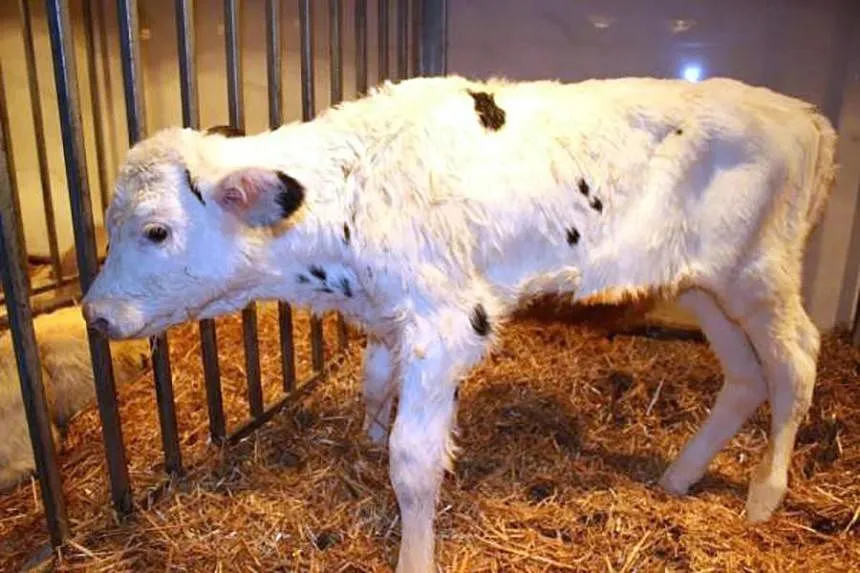Chinese scientists successfully clone ‘super cows’
Chinese scientists clone "super cows" producing 18K+ liters of milk/yr. Safe milk confirmed. Helps reduce China's dependence on imported dairy. Breakthrough uses somatic cell nuclear transfer.

Chinese scientists have cloned three "super cows" that are able to produce 18,000 liters of milk per year and over 100,000 liters of milk in their lifetimes. The cloned cows may help reduce China's dependency on imported dairy cows. The milk produced is no different from that produced by the clone's originals and once the cloned calves reach two years of age, they can start producing milk for the market.
The scientists from the Northwest University of Agricultural and Forestry Science and Technology used the same technique that was used to create Dolly the sheep, the world's first cloned mammal, known as somatic cell nuclear transfer. This involved taking somatic cells from the ears of highly productive Dutch Holstein Frisian cattle and placing them in surrogate cows.
Project lead scientist, Mr. Jin Yaping, said that cloning "super cows" would allow China to preserve its best dairy breeds and avoid the biosecurity risk presented by importing live cows from other countries. Currently, China imports around 70% of its dairy cows.
Many netizens have wondered if the milk from the cloned cows is safe to drink. In 2008, the Food and Drug Administration in the US stated that meat and milk from clones are as safe as those from conventionally bred animals. One of the scientists involved in cloning the cattle, Mr. Wang Bingke, confirmed that the milk was the same as that produced by the original cows and that there was no gene-editing involved in the process.
China has made great progress in animal cloning in recent years, including the world's first cloned monkey in 2017 and the world's first cloned Arctic wolf in 2022.
Source: The Straits Times

